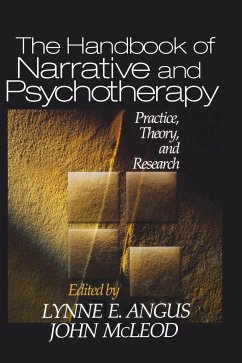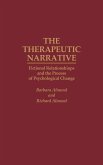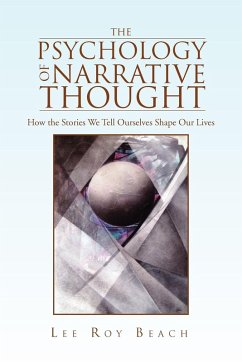`A timely and exciting volume that pulls together diverse work...I think a handbook like this will help to consolidate interest in narrative perspectives on therapy and encourage more dialogue among different types of practitioners and researchers who might not normally convers. The editors have pulled together a rich group of authors and I appreciate the international flavor of the contributors...I think that many university and college libraries would purchase the book for their collections as a handbook on a new direction in psychotherapy practice. It would be used in a graduate seminar on narrative and therapy' - Jefferson Singer, Psychology, Connecticut College `The topic and the cast of authors make the book appealing to people well beyond North America...Anyone planning to conduct research on narrative approaches would have to have this book. Furthermore, as metatheoretical or integrative approaches to understanding psychotherapy process and outcome become more prevalent, the narrative metaphor becomes an important way of conceptualizing these issues' - George Howard, Psychology, University of Notre Dame `The growing interest in constructivist approaches, nontraditional approaches towards research, and specifically narrative as an organizing concept makes it an extremely timely book. The contributors look like a who's who in the area... a well planned book, with the right organization and the right people' - Jeremy Safran, Psychology, The New School for Social Research, NY `I think it is timely to gather together the thinking of people from a variety of corners of the narrative and therapy endeavor and have them spell out their approaches. This book invites people from both different theoretical sub-disciplines as well as different countries...I like the international nature of the group' Ruthellen Josselson, Department Psychology, Towson University `Angus and McLeod are clearly leaders in the area of narrative therapy' - Bill Stiles, Psychology, Miami University, Oxford, Ohio The field of narrative-informed therapy began nearly a decade ago and has now matured to the point where a significant reference work is both timely and appropriate. This Handbook is the first to draw together theorists and practitioners representing a diverse range of approaches to describe and detail assessment and intervention strategies focusing on client story-telling and story reconstruction to promote positive change in clients. A primary goal is to bring together multiple approaches with the aim of promoting a dialogue among differing narrative traditions and synthesizing a more integrated understanding of client story-telling processes in psychotherapy. The editors have aimed for a balance between practice, applied research findings, and background theory. Features/Benefits: }an international "who's-who" cast of contributing authors highlights the various approaches and dimensions of narrative therapy by the people commanding the most authority and attention (e.g., Jerome Bruner, Michael White, Donald Polkinghorne, etc.). } therapy session examples and case materials demonstrate narrative interventions in action. } clear and consistent guidelines informed each chapter; these, along with an opening } preface and a closing chapter by the volume editors, provide unity and suggest connections between and among approaches.
Hinweis: Dieser Artikel kann nur an eine deutsche Lieferadresse ausgeliefert werden.
Hinweis: Dieser Artikel kann nur an eine deutsche Lieferadresse ausgeliefert werden.








